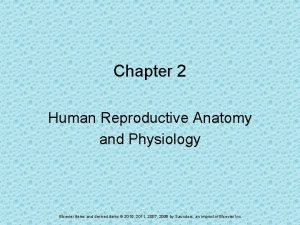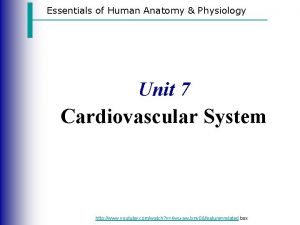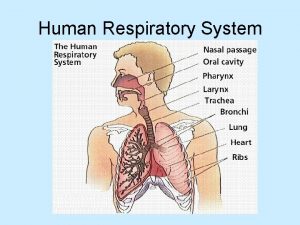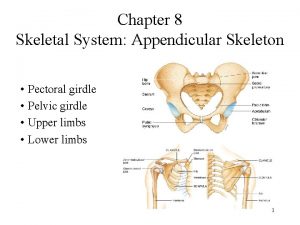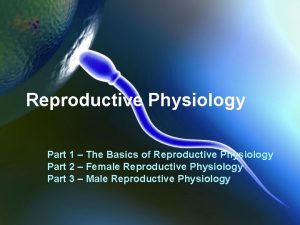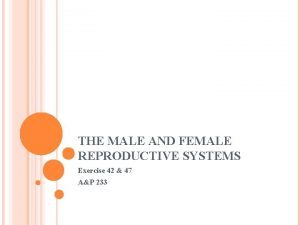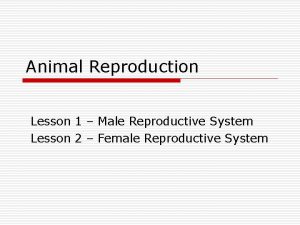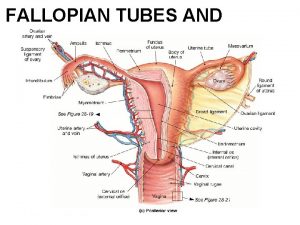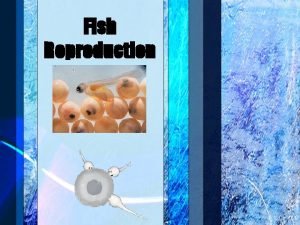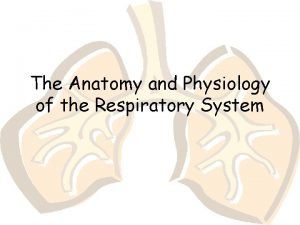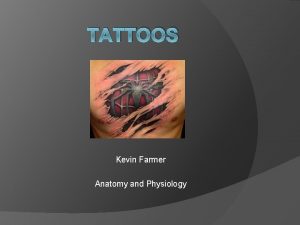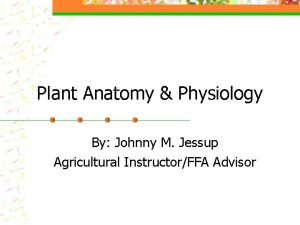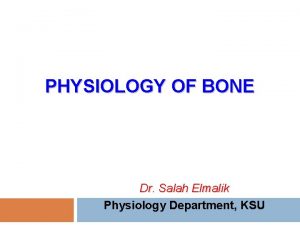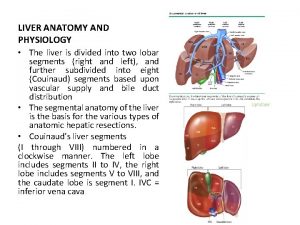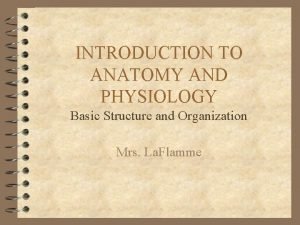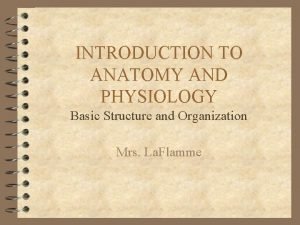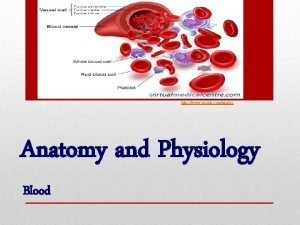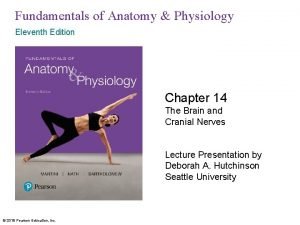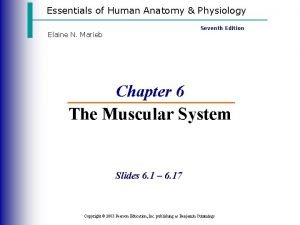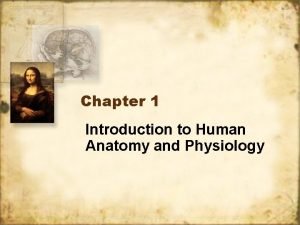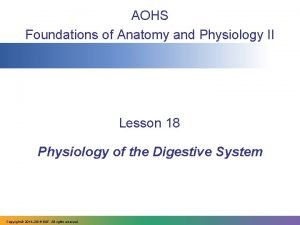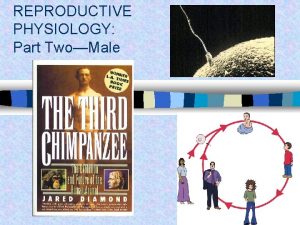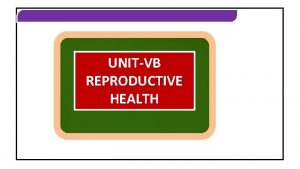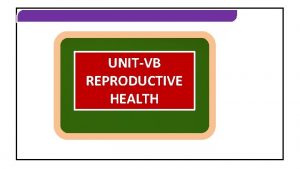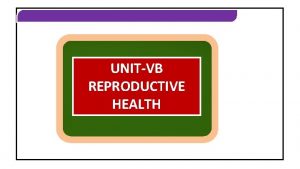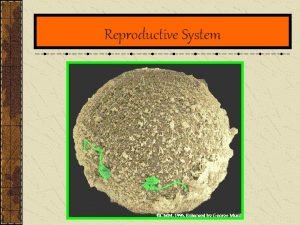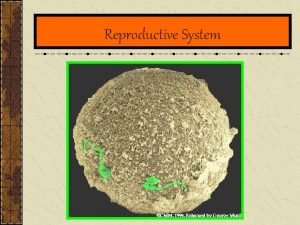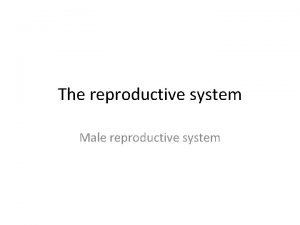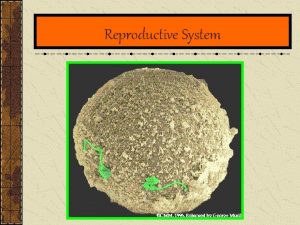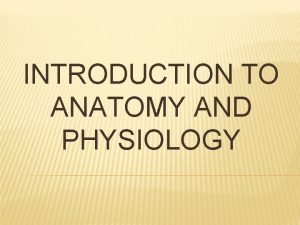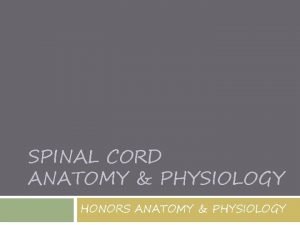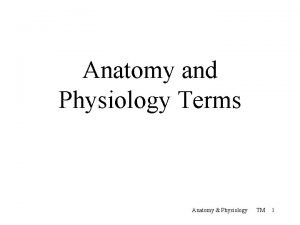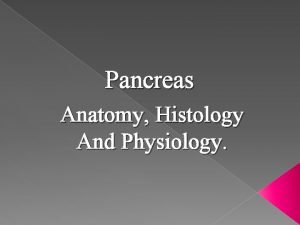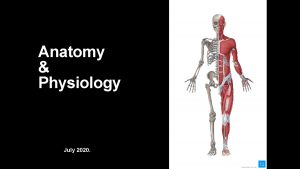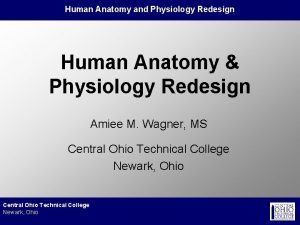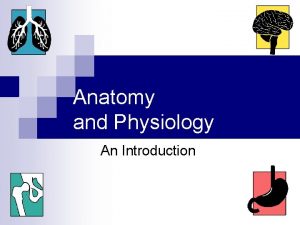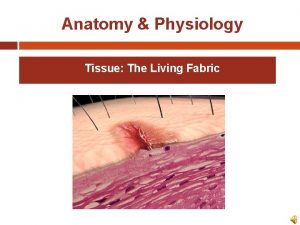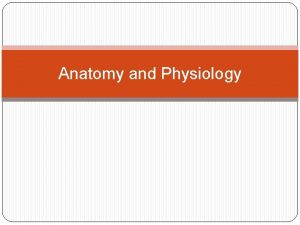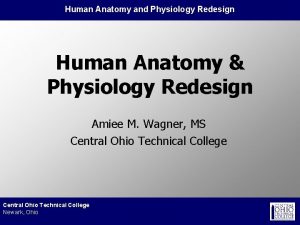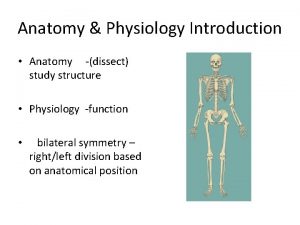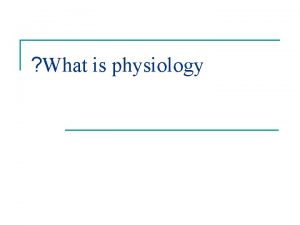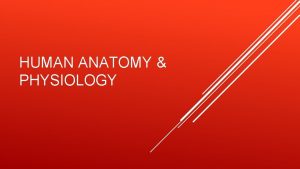THE REPRODUCTIVE SYSTEM ANATOMY PHYSIOLOGY THE REPRODUCTIVE SYSTEM
























- Slides: 24

THE REPRODUCTIVE SYSTEM ANATOMY & PHYSIOLOGY

THE REPRODUCTIVE SYSTEM • functions to produce human offspring with the - male providing sperm (produced within testes) - female providing the ovum (produced within ovaries)

IMPORTANT TERMS Mitosis part of cell cycle which leads to two identical cells with same number of chromosomes in each Meiosis specialized cell division which reduces the chromosome number in half Reproductive cells gametes

MEIOSIS • Only occurs in the testes of males during sperm production • Only occurs in ovaries of female during egg production • cells go from 46 chromosomes (diploid) 23 chromosomes (haploid)

MEIOSIS IN ADULTS • Fertilization= fusion of gametes • Zygote= sperm+ egg https: //www. youtube. com/watch? v=BFr. Vm Dgh 4 v 4 https: //www. youtube. com/watch? v=u. Xs. Cn gh 89 f. I

THE MALE REPRODUCTIVE SYSTEM Primary Sex Organs • Testis (held within the scrotum) Produce the sperm Produce male sex hormones (androgens) Lie outside of male abdominal cavity Testis divided into lobules; each lobule contains seminiferous tubules

SPERMATOGENESIS

THE MALE REPRODUCTIVE SYSTEMACCESSORY ORGANS • Epididymus -ducts where sperm mature and some sperm stored • Vas deferens – (contained within spermatic cord); transport and store sperm • Seminal vesicles – contribute nutrients and fluid to semen; produce prostaglandins and fructose • • Ejaculatory duct –transport sperm Prostate gland – contributes basic fluid to semen Urethra –transport sperm Bulbourethral glands – produce mucoid fluid that neutralizes urine https: //www. youtube. com/watch? v=ic. S Zrxu 0 h. DI https: //www. youtube. com/watch? v=N 66 s. A ZH 1 VA 8

MALE ACCESSORY SEX ORGANS

ANATOMY OF A SPERM

MORE ABOUT SPERM - Takes 74 days or about 10 weeks for sperm to be produced and fully mature for ejaculation - Sperm mature in epididymus - Sperm can be stored in male body for approximately 3 weeks after they are matured

VASECTOMY • Surgical procedure for male sterilization • Vas deferens are cut and sealed/tied off to prevent sperm from traveling which eventually prevents fertilization • ~30 minute procedure • Vasectomy is different than castration (where testicles are removed)

FEMALE REPRODUCTIVE SYSTEM

THE EGG - During fetal development-6 million to 7 million eggs. - At birth, there approximately 1 million eggs - by puberty, only about 300, 000 remain. -only 300 to 400 will be ovulated during a woman's reproductive lifetime.


THE EGG - Egg matures due to LH (Luteinizing Hormone) surge from increased Estrogen - Day 14 of cycle is when ovulation occurs - Ovulation is when egg is released from ovary

FEMALE REPRODUCTIVE SYSTEM • Corpus luteum produces progesterone and helps thicken lining of uterus for implantation • Corpus luteum survives 12 -14 days unless begins receiving Hc. G from developing embryo • If egg not fertilized, then corpus luteum dies off • Corpus luteum deficiency corpus luteum doesn’t develop enough progesterone which leads to

WHEN THE SPERM MEETS THE EGG 1. Sperm approaches egg 2. Sperm acrosomal enzymes digest the eggs jelly coat 3. Proteins in sperm bind with receptors of egg 4. Plasma membranes fuse 5. Sperm nucleus enters eggs cytoplasm 6. Fertilization membrane forms 7. Nuclei fuse https: //www. youtube. com/watch? v=_5 O vg. QW 6 FG 4 https: //www. youtube. com/watch? v=7 G 2 r. L 5 Cutd 4

FEMALE REPRODUCTIVE SYSTEM • Fertilization takes place in fallopian tubes • Uterus houses developing fetus • Cervix contains the opening to the uterus • Vagina serves as birth canal; exit for menstrual flow; receives penis during sexual intercourse

IN THE LAB DISSECTION NOTES Adapted from Whitman College

IN THE LAB DISSECTION OF FETAL PIG

MORE ANATOMICAL LOCATION

DETERMINING THE SEX OF YOUR PIG

Male In males urogenital tract opens near umbilical region Female
 Chapter 2 human reproductive anatomy and physiology
Chapter 2 human reproductive anatomy and physiology Anatomy and physiology unit 7 cardiovascular system
Anatomy and physiology unit 7 cardiovascular system Respiratory system of human
Respiratory system of human Anatomy and physiology chapter 8 skeletal system
Anatomy and physiology chapter 8 skeletal system Luteinizing hormone in male reproductive system
Luteinizing hormone in male reproductive system Exercise 42 anatomy of the reproductive system
Exercise 42 anatomy of the reproductive system Cow reproductive anatomy
Cow reproductive anatomy Falopian tube parts
Falopian tube parts Diagram of male and female reproductive system of fish
Diagram of male and female reproductive system of fish Structure of the upper respiratory system
Structure of the upper respiratory system Tattoo anatomy and physiology
Tattoo anatomy and physiology Anatomy science olympiad
Anatomy science olympiad Specialized stems examples
Specialized stems examples Anatomy and physiology of bone
Anatomy and physiology of bone Anatomy and physiology of peptic ulcer
Anatomy and physiology of peptic ulcer Liver anatomy and physiology
Liver anatomy and physiology Podbřišek
Podbřišek Iliac regions
Iliac regions Google image
Google image The central sulcus divides which two lobes? (figure 14-13)
The central sulcus divides which two lobes? (figure 14-13) Human anatomy and physiology seventh edition marieb
Human anatomy and physiology seventh edition marieb Http://anatomy and physiology
Http://anatomy and physiology Waistline
Waistline Physiology of appendix
Physiology of appendix Aohs foundations of anatomy and physiology 1
Aohs foundations of anatomy and physiology 1
